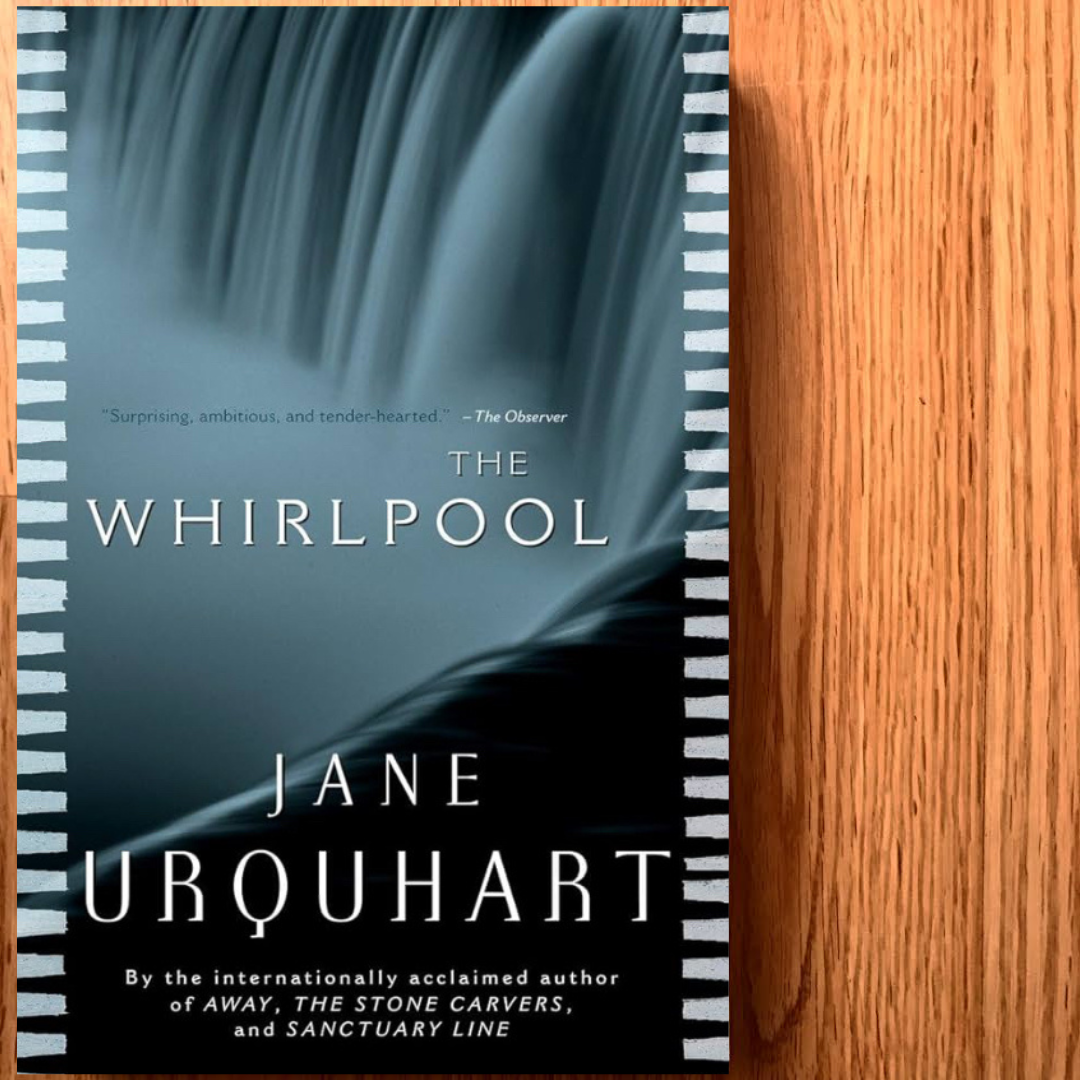By Sara Hailstone
Respected Canadian author, Jane Urquhart wrote her debut novel titled, The Whirlpool, which was published by McClelland and Stewart in 1986. It was the first Canadian novel to be awarded France’s Prix du Meilleur Livre Étranger (Best Foreign Book Award), following publications of the novel in various languages and across European countries.
Urquhart established a successful literary career following her debut novel. Her later novel,The Underpainter won the Governor General’s Award for English-language fiction and The Stone Carvers was a finalist for the Giller Prize and the Governor General’s Award, and was longlisted for the Booker Prize. A Map of Glass was a finalist for a regional Commonwealth Writers’ Prize for Best Book. She has a collection of short stories titled, Storm Glass and four books of poetry. Urquhart lives in Northumberland County, Ontario, and sometimes resides in Ireland.
The Whirlpool has been reviewed with a lens of motif, plot structure, and characterization. Some have found the poetic language of the text to be inaccessible and that the plot whips around, spiraling like a whirlpool in and of itself. Characters have been noted for their eccentricities and layers of varying obsessions that either consume or isolate them. However, I found this novel finds reprieve in the poetic connections of nature that extends the Canadian landscape into a literary consciousness and further the wondering that is centered around the language development of a character referred to as “the child” who has been deemed to portray qualities of Autism.
Fixed on the churning whirlpool two kilometers downstream of Niagara Falls in the summer of 1889, the reader is pulled into the entangled lives of several enigmatic characters and their individual obsessions.
Maud Grady is an undertaker’s widow. The man had been fixated on spiders and their webs, setting a tone for the structure and plot line that the very characters will become caught up in. Maud meticulously catalogues the belongings of those taken by the falls and the river while continuing to run her former husband’s business. She has a mute son who develops language throughout the story. The progress of his language development loosely mirrors B.F. Skinner’s hierarchy of verbal behaviour that constructed the pillars for behavioural science and understanding of autism.
The boy requests, labels, and carries out reciprocal exchanges, labelling actions and objects within his environment. When he begins to categorize, he seizes objects within the house, arranging them in piles and associations. In a deeper sense, he turns his mother’s carefully compartmentalized world upside down by opening the belongings of the fall’s victims and combines the items by similarities. An awakening for his mother, she sees the bigger picture of the world differing from the way of being she had traditionally tried to honour and pay homage to. I think the behaviour of the boy, alone, is integral in revisiting this classic text in relation to representations of neurodivergence in literature.
The novel’s wrapped in a prologue and epilogue that feature the life of poet Robert Browning and his death in Venice, which has stumped some reviewers. A line of continuity is threaded through the width of the plot trajectory through the character of Fleda, who loves Browning, and nooks her life experiences throughout the novel to lines of his poetry. Fleda is the wife of David McDougal, a military historian infatuated with Laura Secord and the war of 1812. The couple have just sold their large manor house to relocate and build a new home by the whirlpool, and have camped out in a tent by the pool for the summer. They encounter a man named Patrick, a poet suffering from writer’s block who works for the government in Ottawa. He’s come to live with his aunt and uncle in Niagara Falls and discovers Fleda in the woods by the whirlpool when he is out in nature seeking reprieve and inspiration in nature. He finds passion and an awakening of the writing process in Fleda, and so begins his narrative obsession with the lady of the woods. In turn, all characters are entangled in obsession like a web, one that chokes them out or opens them up painfully.
This novel is complex and simple simultaneously. As readers, we can observe with distance how the human responds to others, how they contemplate being viewed, and how they wish to be responded to and viewed in turn, especially when this wanting is not achieved or met.
Thank you to Jane Urquhart and Cloud Lake Literary for the opportunity to write an honest review. I highly recommend The Whirlpool as a must-read and study in pursuing the canon of Canadian Literature and Canadian storytelling.

